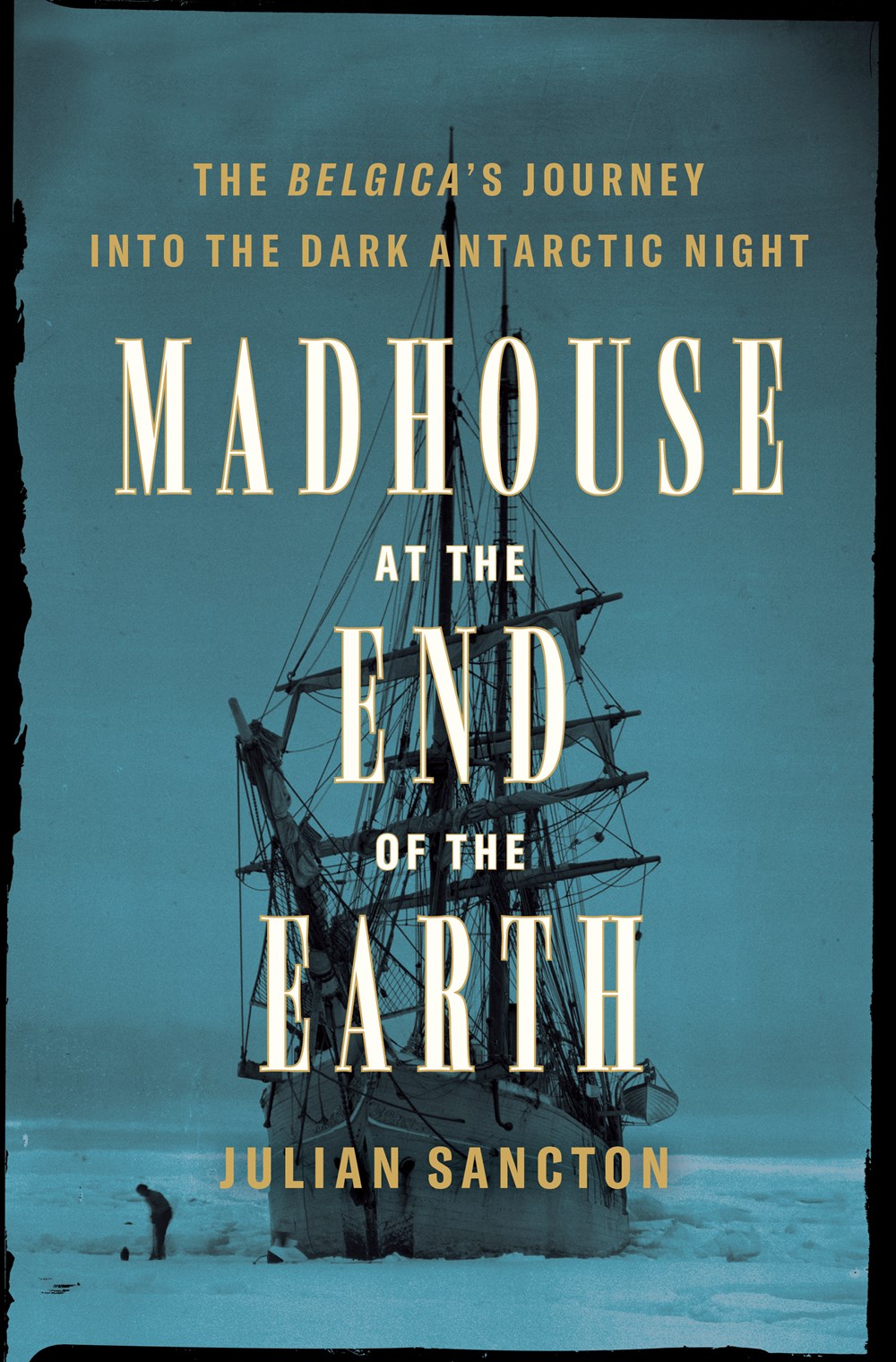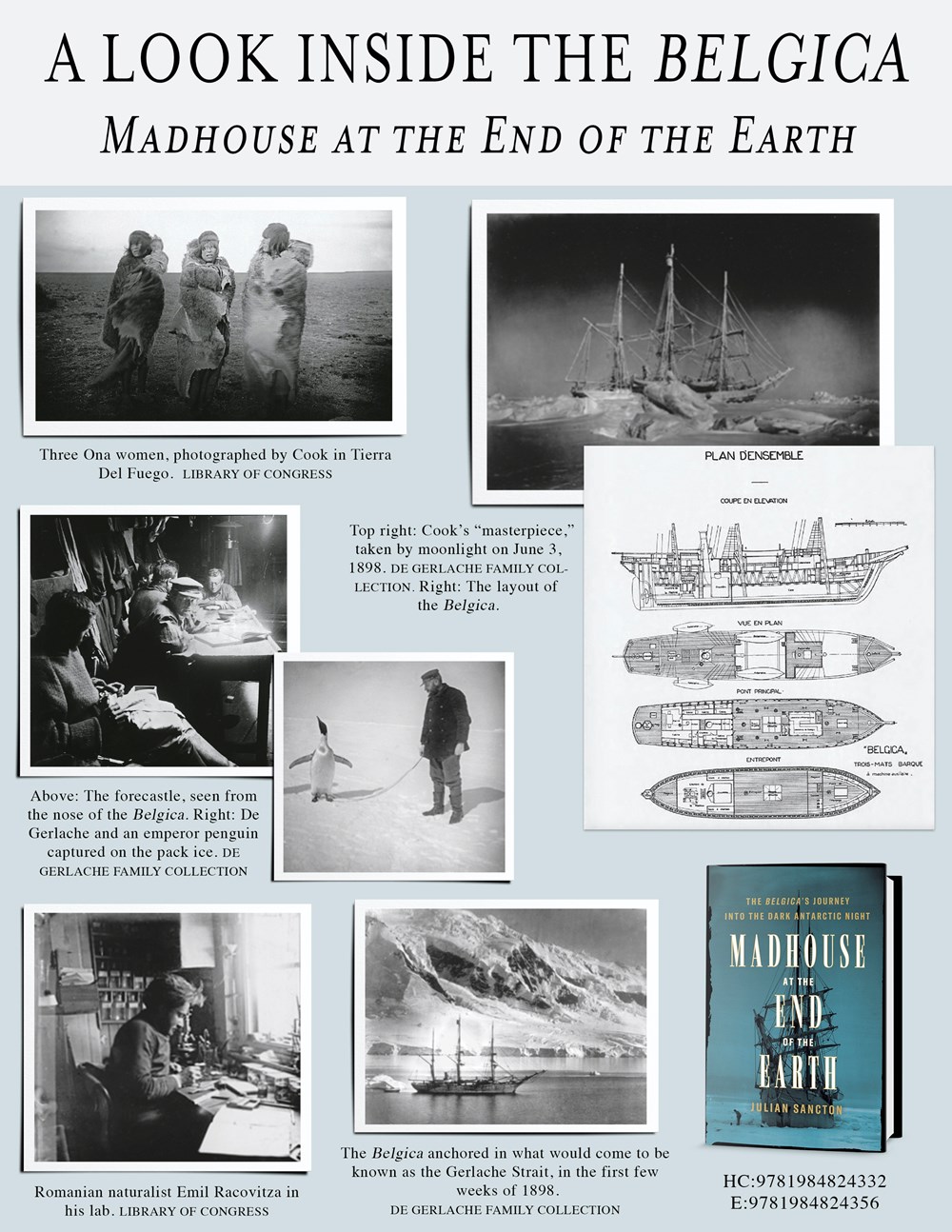Address change to reviews.pivic.com
This site is changing its address.

This is a story about how one commander roped together a motley band of people, some expert, some extremely incompetent, and set off on a journey to Antarctica on the ship Belgica. Visions of fame, broken world records, money, and adventure, a crew was collated and a journey from Belgium began.
There were failed and deadly travels made before in search of the poles. The ships Terror and Erebus left for their journeys a few decades before Belgica, and both were frozen stuck in ice. This was most definitely in the minds of arctic would-be explorers.
This book managed to not only send chills down my spine more times than I remember, but its author soberly and brilliantly wove together many tales that would seem unbelievable if told in a vivacious manner.
But perhaps the most dreaded possibility was that the Belgica would be caught in the ice and either crushed by the pressure or kept captive indefinitely, leaving her men to starve to death. Several notorious expeditions to the northern polar regions had met such fates. De Gerlache presumed that a half ton of tonite would more than suffice to break the grip of the sea ice. It was the first time he underestimated the power of Antarctica, but it would not be the last.
The book paints a picture of different individuals from different cultures, some of which agreed to carry out a mission with very different motives. There’s not much psychology at play other than what Sancton lets the reader puzzle together, nor is this a bone-dry recant of events. The closest comparison I can make from this book, is probably Arthur Conan Doyle’s books about Sherlock Holmes. Not that this is a detective story! Most of that work is done for us by Sancton, who has pieced together a detailed picture from many different sources, not all of which are believable, which makes this story even more interesting.
Adrien de Gerlache, the commander of Belgica, was an interesting and frustrating man. He was good at raising funds for his journey but could not handle a crew.
The Belgian crew members de Gerlache was able to wrangle over the course of a year were far from the cream of the crop. They included a navy mechanic, Joseph Duvivier, whose superior officer wrote a letter of recommendation that read much more like a warning: “In summation, it is possible that Mr. Duvivier might figure out how to work a very simple engine, like the Belgica’s, but I cannot guarantee it.” De Gerlache hired him.
There’s a notable person in this book:
In late July 1896, de Gerlache received a letter that caught his attention:
To Lieutenant A. de Gerlache, As I have just been informed that you don’t intend to launch your Antarctic expedition until next year, I would like to ask if there is still an open position among the personnel of your expedition. If so, I would be grateful for a spot as a sailor. I’m 24 years old and I served in 1894 on the “Magdalena” with Captain Stöcksen in the glacial sea and this year aboard the “Jason,” Captain Evensen. I have passed my middle school exams, the baccalaureate, and my navigation school exam. I have the best certificate as regards my health. Finally, I might add that I am used to skiing and that I have undertaken difficult ski trips in the high mountains. I would be grateful if you would kindly respond soon…. Roald Amundsen
When thinking of this book, I count several emotions: excitement, frustration, anger, fear, affection, and engagement. The story is told in great pace using old-school adventure style. I was truly gripped by this book and read it in a day.
No human being had ever wintered south of the South Shetland Islands—let alone south of the antarctic circle—and the dangers of doing so in the sea ice were obvious. De Gerlache was well aware of the fate that could befall an icebound expedition. He had read enough polar history to know that it was far easier to enter the pack than to break out of it. Such was the case with the Franklin expedition of the 1840s: after the Terror and the Erebus succumbed to the pack in the Canadian Arctic, all of their men were left to die of cold, starvation, and disease.
Many things took place on the Belgica. I will not spoil surprises, but near-mutiny being thing is enough to note, but I assure you: you risk not believing me if I would list them, for they are many and often unrestrained. This is partly a classical tale of what happens when one does not analyse and plan what could happen during a journey.
I can only recommend this book extremely highly. It’s a paragon of success where adventures go, and its appendix of what happened after the journey is also thoroughly engaging.
